By Michael Lord
Global Research, February 05, 2022
First published on December 18, 2022
Economist Ernst Wolff believes that a hidden alliance of political and corporate leaders is exploiting the pandemic with the aim of crashing national economies and introducing a global digital currency.
How is it that more than 190 governments from all over the world ended up dealing with the COVID-19 pandemic in almost exactly the same manner, with lockdowns, mask mandates, and vaccination cards now being commonplace everywhere?
The answer may lie in the Young Global Leaders school, which was established and managed by Klaus Schwab of the World Economic Forum, and that many of today’s prominent political and business leaders passed through on their way to the top.
.
The German economist, journalist, and author Ernst Wolff has revealed some facts about Schwab’s “Young Global Leaders” school that are relevant for understanding world events during the pandemic in a video from the German Corona Committee podcast.
While Wolff is mainly known as a critic of the globalist financial system, recently he has focused on bringing to light what he sees as the hidden agenda behind the anti-Covid measures being enacted around the world.
Mysterious Beginnings
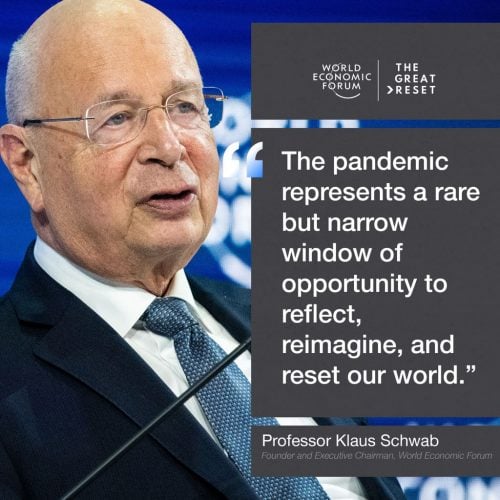 The story begins with the World Economic Forum (WEF), which is an NGO founded by Klaus Schwab, a German economist and mechanical engineer, in Switzerland in 1971, when he was only 32.
The story begins with the World Economic Forum (WEF), which is an NGO founded by Klaus Schwab, a German economist and mechanical engineer, in Switzerland in 1971, when he was only 32.
The WEF is best-known to the public for the annual conferences it holds in Davos, Switzerland each January that aim to bring together political and business leaders from around the world to discuss the problems of the day. Today, it is one of the most important networks in the world for the globalist power elite, being funded by approximately a thousand multinational corporations.
The WEF, which was originally called the European Management Forum until 1987, succeeded in bringing together 440 executives from 31 nations already at its very first meeting in February 1971, which as Wolff points out was an unexpected achievement for someone like Schwab, who had very little international or professional experience prior to this.
 Wolff believes the reason may be due to the contacts Schwab made during his university education, including studying with no less a person than former National Security Advisor and Secretary of State Henry Kissinger. Wolff also points out that while Schwab was there, the Harvard Business School had been in the process of planning a management forum of their own, and it is possible that Harvard ended up delegating the task of organizing it to him.
Wolff believes the reason may be due to the contacts Schwab made during his university education, including studying with no less a person than former National Security Advisor and Secretary of State Henry Kissinger. Wolff also points out that while Schwab was there, the Harvard Business School had been in the process of planning a management forum of their own, and it is possible that Harvard ended up delegating the task of organizing it to him.
The Forum initially only brought together people from the economic field, but before long, it began attracting politicians, prominent figures from the media (including from the BBC and CNN), and even celebrities.
Schwab’s Young Global Leaders: Incubator of “The Great Reset”?
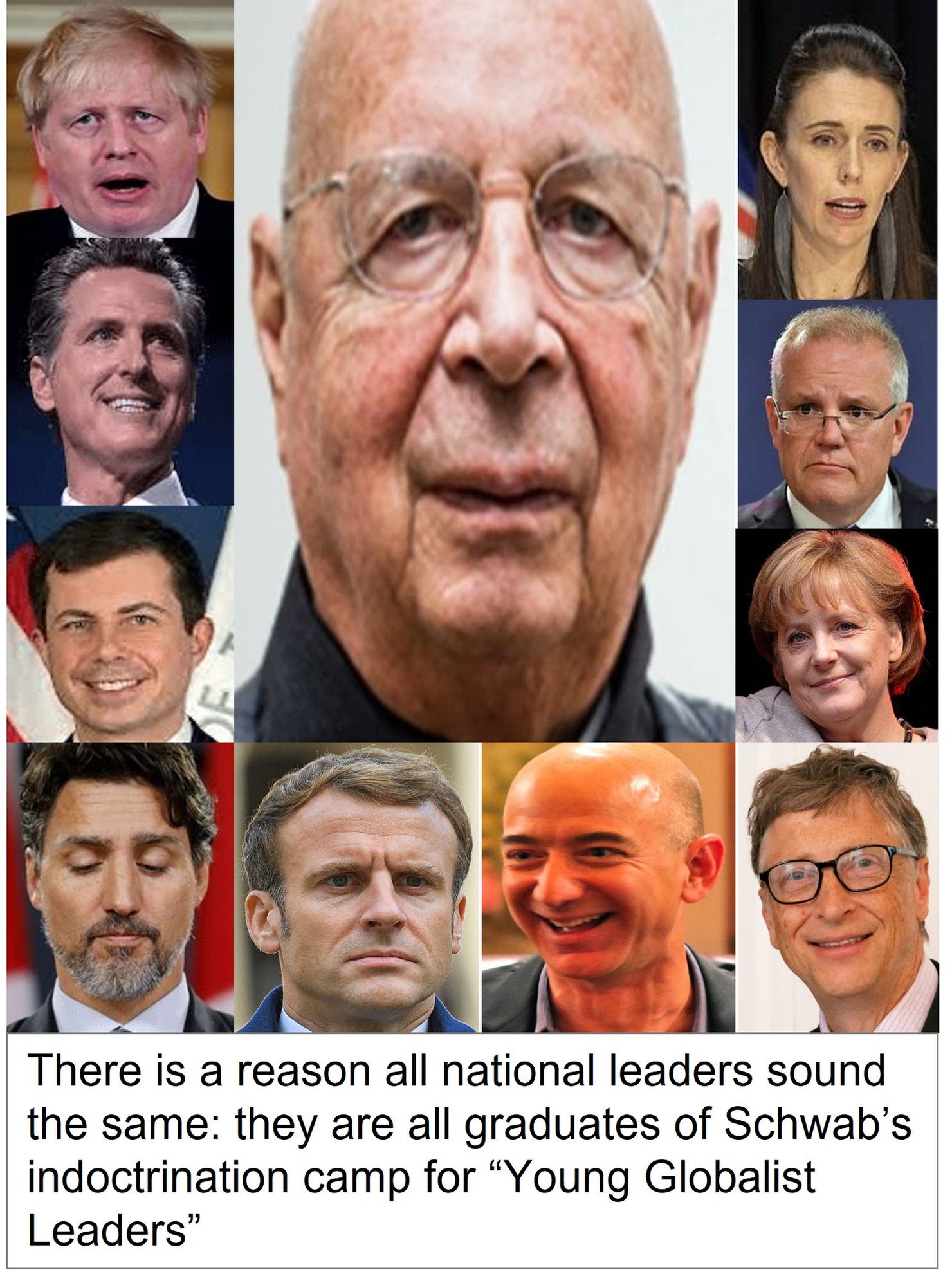 In 1992 Schwab established a parallel institution, the Global Leaders for Tomorrow school, which was re-established as Young Global Leaders in 2004.
In 1992 Schwab established a parallel institution, the Global Leaders for Tomorrow school, which was re-established as Young Global Leaders in 2004.
Attendees at the school must apply for admission and are then subjected to a rigorous selection process.
Members of the school’s very first class in 1992 already included many who went on to become important liberal political figures, such as Angela Merkel, Nicolas Sarkozy, Justin Trudeau and Tony Blair.
There are currently about 1,300 graduates of this school, and the list of alumni includes several names of those who went on to become leaders of the health institutions of their respective nations.
Four of them are former and current health ministers for Germany, including Jens Spahn, who has been Federal Minister of Health since 2018.
Philipp Rösler, who was Minister of Health from 2009 until 2011, was appointed the WEF’s Managing Director by Schwab in 2014.
Other notable names on the school’s roster are Jacinda Ardern, the Prime Minister of New Zealand whose stringent lockdown measures have been praised by global health authorities;
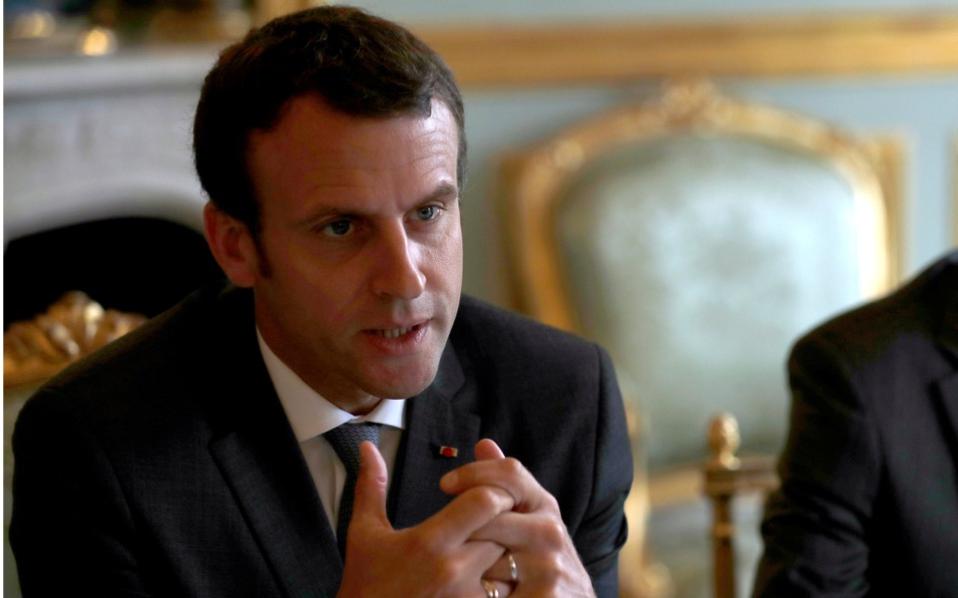 Emmanuel Macron, President of France. Young Global Leaders Class of 2017.
Emmanuel Macron, President of France. Young Global Leaders Class of 2017.
Sebastian Kurz, who was until recently the Chancellor of Austria;
Viktor Orbán, Prime Minister of Hungary;
Jean-Claude Juncker, former Prime Minister of Luxembourg and President of the European Commission;
 Angela Merkel, Global Leaders for Tomorrow Class of 1992.
Angela Merkel, Global Leaders for Tomorrow Class of 1992.
and Annalena Baerbock, the leader of the German Greens who was the party’s first candidate for Chancellor in this year’s federal election, and who is still in the running to be Merkel’s successor.
 We also find California Governor Gavin Newsom on the list, who was selected for the class of 2005, (image right) as well as former presidential candidate.
We also find California Governor Gavin Newsom on the list, who was selected for the class of 2005, (image right) as well as former presidential candidate.
And current US Secretary of Transportation Peter Buttigieg, who is a very recent alumnus, having been selected for the class of 2019.
All of these politicians who were in office during the past two years have favored harsh responses to the COVID-19 pandemic, and which also happened to considerably increase their respective governments’ power.
Gavin Newsom, Young Global Leaders Class of 2005. (image right)
But the school’s list of alumni is not limited to political leaders.
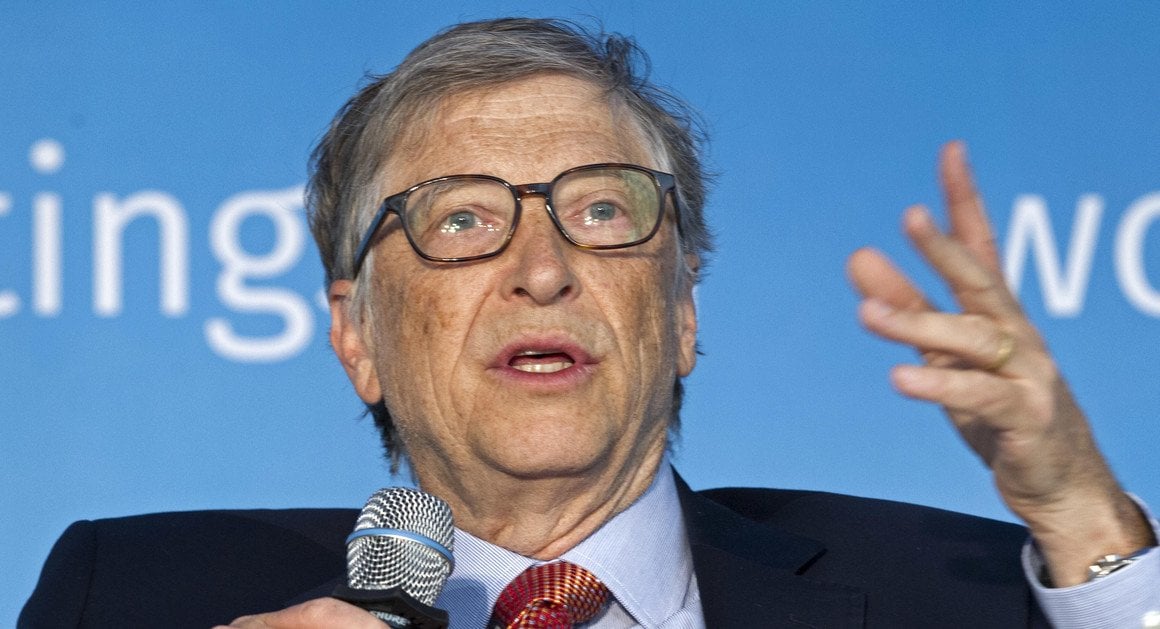 We also find many of the captains of private industry there, including Microsoft’s Bill Gates, Amazon’s Jeff Bezos, Global Leaders for Tomorrow Class of 1998. Virgin’s Richard Branson, and the Clinton Foundation’s Chelsea Clinton.
We also find many of the captains of private industry there, including Microsoft’s Bill Gates, Amazon’s Jeff Bezos, Global Leaders for Tomorrow Class of 1998. Virgin’s Richard Branson, and the Clinton Foundation’s Chelsea Clinton.
Again, all of them expressed support for the global response to the pandemic, and many reaped considerable profits as a result of the measures.
Wolff believes that the people behind the WEF and the Global Leaders school are the ones who really determine who will become political leaders, although he stresses that he doesn’t believe that Schwab himself is the one making these decisions but is merely a facilitator. He further points out that the school’s alumni include not only Americans and Europeans, but also people from Asia, Africa, and South America, indicating that its reach is truly worldwide.
In 2012, Schwab and the WEF founded yet another institution, the “Global Shapers Community,” which brings together those identified by them as having leadership potential from around the world who are under 30.
Approximately 10,000 participants have passed through this program to date, and they regularly hold meetings in 400 cities. Wolff believes that it is yet another proving ground where future political leaders are being selected, vetted, and groomed before being positioned in the world’s political apparatus.
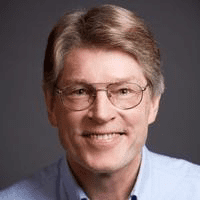
Wolff points out that very few graduates of the Global Leaders school list it on their CVs. He says that he has only seen it listed on one: namely, that of the German economist Richard Werner, who is a known critic of the establishment.
Economist Ernst Wolff
Wolff suggests that the school seems to like to include even critics of the system among its ranks, as another name among its graduates is Gregor Hackmack, the German chief of Change.org, who was in its 2010 class. Wolff believes this is because the organization wants to present itself as being fair and balanced, although it also wants to ensure that its critics are controlled opposition.
Another thing that the Global Leaders graduates have in common is that most of them have very sparse CVs apart from their participation in the program prior to being elevated to positions of power, which may indicate that it is their connection to Schwab’s institutions that is the decisive factor in launching their careers. This is most evident when the school’s alumni are publicly questioned about issues that they have not been instructed to talk about in advance, and their struggles to come up with answers are often quite evident. Wolff contends that their roles are only to act as mouthpieces for the talking points that those in the shadows behind them want discussed in public debate.
Schwab’s Yes Men in Action
Given the growing discontent with the anti-Covid measures put into practice by the school’s graduates who are now national leaders, Wolff believes it is possible that these people were selected due to their willingness to do whatever they are told, and that they are being set up to fail so that the subsequent backlash can be exploited to justify the creation of a new global form of government.
Indeed, Wolff notes that politicians with unique personalities and strong, original views have become rare, and that the distinguishing character of the national leaders of the past 30 years has been their meekness and adherence to a strict globalist line dictated from above. This has been especially evident in most countries’ response to the pandemic, where politicians who knew nothing about viruses two years ago suddenly proclaimed that Covid was a severe health crisis that justified locking people up in their homes, shutting down their businesses, and wrecking entire economies.
Determining exactly how the school operates is difficult, but Wolff has managed to learn something about it. In the school’s early years, it involved the members of each class meeting several times over the course of a year, including a ten-day “executive training” session at the Harvard Business School. Wolff believes that, through meeting their classmates and becoming part of a wider network, the graduates then establish contacts who they rely on in their later careers.
Today, the school’s program includes courses offered over the course of five years at irregular intervals, which in some cases may overlap with the beginnings of some of its participants’ political or professional careers – meaning they will be making regular visits to Davos. Emmanuel Macron and Peter Buttigieg, for example, were selected for the school less than five years ago, which means it is possible they have been regularly attending Young Global Leaders-related programs while in political office and may in fact still be attending them today.
A Worldwide Network of Wealth & Influence
 Graduates from the Young Global Leaders school, and Global Leaders for Tomorrow before them, find themselves very well-situated given that they then have access to the WEF’s network of contacts. The WEF’s current Board of Trustees includes such luminaries as Christine Lagarde, former Managing Director of the International Monetary Fund and current President of the European Central Bank;
Graduates from the Young Global Leaders school, and Global Leaders for Tomorrow before them, find themselves very well-situated given that they then have access to the WEF’s network of contacts. The WEF’s current Board of Trustees includes such luminaries as Christine Lagarde, former Managing Director of the International Monetary Fund and current President of the European Central Bank;
Queen Rania of Jordan, who has been ranked by Forbes as one of the 100 most powerful women in the world; and Larry Fink, CEO of BlackRock, the largest investment management corporation internationally and which handles approximately $9 trillion annually.
By tracing the connections between the school’s graduates, Wolff claims that you can see that they continue to rely on each other for support for their initiatives long after they participated in the Global Leaders programs.
Wolff believes that many elite universities play a role in the process determined by the WEF, and that they should no longer be seen as operating outside of the fields of politics and economics. He cites the example of the Harvard Business School, which receives millions of dollars from donors each year, as well as the Harvard School of Public Health, which was renamed the Harvard T. H. Chan School of Public Health after it received $350 million from the Hong Kong-born billionaire Gerald Chan. The same is true of the Johns Hopkins School of Public Health, which became the Johns Hopkins Bloomberg School of Public Health after media mogul Michael Bloomberg donated $1.8 billion to the school in 2018.
Wolff states that the WEF’s influence goes far beyond those who have passed through the Global Leaders and Global Shapers programs, however, as the number of people who participate in the annual Davos conferences is much larger than many suspect; he mentions being informed that approximately 1,500 private jets bring attendees to the event each year, overloading Switzerland’s airports.
The Alliance of Big Business & Government
The main goal of the WEF’s activities, Wolff believes, is to facilitate and further high-level cooperation between big business and national governments, something which we are already seeing take place. Viviane Fischer, another participant in the Corona Committee podcast, points out that the British-based company Serco processes migrants for the British government and also manages prisons around the world, among its many other activities. The pharmaceutical industry’s international reach is also considerable: Wolff mentions that Global Leaders alumnus Bill Gates, for example, had long been doing business with Pfizer, one of the main producers of the controversial mRNA anti-Covid vaccines, through his Foundation’s public health initiatives in Africa since long before the pandemic began. Perhaps not coincidentally, Gates has become one of the foremost champions of lockdowns and the Covid vaccines since they became available, and The Wall Street Journal has reported that his Foundation had made approximately $200 billion in “social benefits” from distributing vaccines before the pandemic had even begun. One can only imagine what its vaccine profits are today.
Digital technology, which is now all-pervasive, is also playing a prominent role in the elite’s global designs. Wolff highlights that BlackRock, run by Global Leaders alumnus Larry Fink, is presently the largest advisor to the world’s central banks and has been collecting data on the world financial system for more than 30 years now, and undoubtedly has a greater understanding of how the system works than the central banks themselves.
One of the goals of the current policies being pursued by many governments, Wolff believes, is to destroy the businesses of small- and medium-sized entrepreneurs so that multinational corporations based in the United States and China can monopolize business everywhere. Amazon, which was led until recently by Global Leaders alumnus Jeff Bezos, in particular has made enormous profits as a result of the lockdown measures that have devastated the middle class.
Wolff contends that the ultimate goal of this domination by large platforms is to see the introduction of digital bank currency. Just in the past few months, China’s International Finance Forum, which is similar to the WEF, proposed the introduction of the digital yuan, which could in turn be internationalized by the Diem blockchain-based currency network. Interestingly, Diem is the successor to Libra, a cryptocurrency that was first announced by Mark Zuckerberg’s Facebook, indicating that a global currency that will transcend the power of either the dollar or the yuan, and managed through the cooperation of Chinese, European, and American business networks, is currently being discussed. The International Finance Forum’s supervisory board includes such names as the WEF’s Christine Lagarde; Jean-Claude Trichet, the former President of the European Central Bank; and Horst Köhler, the former Head of the International Monetary Fund.
Wolff further explains that the lockdowns and subsequent bailouts that were seen around the world over the past two years left many nations on the verge of bankruptcy. In order to avoid an economic catastrophe, the governments of the world resorted to drawing on 650 billion special drawing rights, or SDRs, which are supplementary foreign exchange reserve assets managed by the International Monetary Fund. When these eventually come due, it will leave these same governments in dire straits, which is why it may be that the introduction of digital currency has become a sudden priority – and this may have been the hidden purpose of the lockdowns all along.
Wolff says that two European countries are already prepared to begin using digital currency: Sweden and Switzerland. Perhaps not coincidentally, Sweden has had virtually no lockdown restrictions due to the pandemic, and Switzerland has taken only very light measures. Wolff believes that the reason for this may be that the two countries did not need to crash their economies through lockdown measures because they were already prepared to begin using digital currency before the pandemic began. He contends that a new round of lockdowns may be being prepared that will finish off the world’s economies for good, leading to massive unemployment and in turn the introduction of Universal Basic Income and the use of a digital currency managed by a central bank. This currency might be restricted, both in terms of what individuals can spend it on as well as in the time frame that one has to spend it in.
Further, Wolff indicates that the inflation currently being seen around the world is an inevitable consequence of the fact that national governments, after taking loans from the central banks, have introduced approximately $20 trillion into the global economy in less than two years. Whereas previous bailouts were directed into the markets, this latest round has gone to ordinary people, and as a result, this is driving up the prices of products that ordinary people spend their money on, such as food.
Democracy Has Been Cancelled
The ultimate conclusion one must draw from all of this, according to Wolff, is that democracy as we knew it has been silently cancelled, and that although the appearance of democratic processes is being maintained in our countries, the fact is that an examination of how governance around the world works today shows that an elite of super-wealthy and powerful individuals effectively control everything that goes on in politics, as has been especially evident in relation to the pandemic response.
The best way to combat their designs, Wolff says, is simply to educate people about what is happening, and for them to realize that the narrative of the “super-dangerous virus” is a lie that has been designed to manipulate them into accepting things that run contrary to their own interests. If even 10% of ordinary citizens become aware of this and decide to take action, it could thwart the elite’s plans and perhaps open a window for ordinary citizens to take back control over their own destinies.
Video Interviews
Ernst Wolff is interviewed in this series of videos by Dr. Reiner Fuellmich, a German lawyer and politician who hosts a podcast called Corona Ausschuss (Corona Committee), which critically examines the German government’s response to the pandemic. These videos are taken from one of their podcasts.
Click here
Also on the group chat are Viviane Fischer, a business attorney and economist based in Berlin who is a regular participant on the Corona Committee; and Wolfgang Wodarg, a former German Member of Parliament for the Social Democratic Party who has been vocal in opposing the German government’s lockdown and vaccination measures.

No comments:
Post a Comment
Note: Only a member of this blog may post a comment.